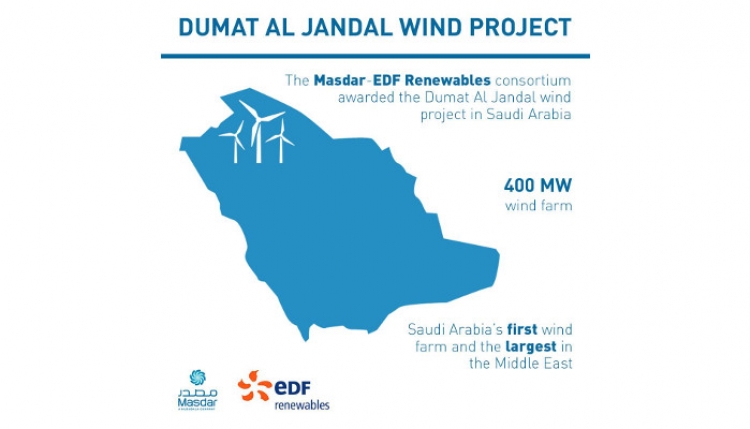The Masdar Institute of Science and Technology, a research-driven institution focused on advanced energy and sustainable technologies, today announced more than 40 undergraduate students, including 25 UAE nationals from local and international universities, were given the opportunity to research and learn about critical topics as part of its annual Summer Research Internship Program. The Masdar Institute is part of Khalifa University of Science and Technology.
The interns participated in a range of research projects relevant to the UAE and the region. These included designing and developing a miniature satellite called a CubeSat, learning about the research environment in core lab facilities, developing energy storage solutions, measuring passive radiative cooling to save energy, and developing an advanced system for the Internet of Things.
Dr. Lamya N. Fawwaz, Vice President for Institutional Advancement and Public Affairs, Masdar Institute, said: “Teaching promising undergraduates how to apply science and research skills from our world-class professors, in our high-tech labs, is part of Masdar Institute’s commitment to supporting the UAE leadership’s emphasis on human capital development. Through our internship program students learn about the excitement of advanced scientific education, which provides them with the skills needed to be part of the country’s most high-demand economic sectors. I am confident many of these young people will build on their internship experience to go on to become high-tech professionals in the UAE’s knowledge economy.”
As part of the program, which is coordinated by Dr. Kenneth Volk, Outreach Manager, Masdar Institute, the faculty organize special research projects for the interns. Students interested in applying for a Masdar Institute Summer Research Internship Program must apply for a specific project. Each project has a list of tasks and a recommended academic major required for the intern. This year’s interns included students from most of the universities in the UAE and several from abroad.
Dr. Mustapha Jouiad, Principal Research Scientist and Microscopy Facility Manager, hosted a project at the Masdar Institute Core Research Laboratory, which was focused on equipping the interns with insights about the cutting-edge equipment. Intern Juveiriah Ashraf, from the University of Sharjah, worked on graphene growth through chemical vapor deposition as well as electroplating and material characterization using advanced analytical tools.
Fellow intern Mufeedah Kandatharavintakath, from Amity University in Dubai, worked on mechanical properties of polymers and nano-reinforced polymers using dynamic mechanical analysis. Materials such as the ones studied could be used to develop lightweight fans for wind turbines.
In the areas of space technology and energy storage, Dr. Saif Saeed Al Mheiri, Assistant Professor, Mechanical and Materials Engineering, mentored six interns. Dr Al Mheiri said: “One notable observation is that this year’s students are looking to solve trendy challenges related to energy storage. They are willing to think like a scientist and approach a problem like an engineer. They take reviewing the literature seriously. Most importantly, they like to express their novel ideas and explore the feasibility of implementing them.”
Ali Al Awadhi, from the UAE University, joined Dr. Al Mheiri’s project with the UAE Space Agency where he worked on fabrication of an anodic aluminum oxide template to be used to synthesize lithium iron phosphate nanowires, which can be used as cathode material in lithium-ion batteries for space and other applications.
Another intern, Asma AlShehhi from University Of Sharjah, studied the effects of carbonaceous impurities on the performance of carbon nanotubes in electrodes used with vanadium redox flow batteries, while Mahra Alhoot from the University of Sharjah, investigated the performance of next-generation cathode materials for lithium-ion batteries, which can be used in electric vehicles as well as other applications. “I felt the Masdar Institute internship was an inspiration to begin one’s own innovation,” she said.
Intern Noura Aldarmaki from the University of Sharjah, explored the effect of the casting substrate on the morphology of carbon nanotube sheets, while Sofia Sahib from National Institute of Technology Karnataka, India, worked on developing techniques for increasing the thickness of carbon nanotube sheets.
Fathima Parveen from Amity University, Dubai, experienced the challenge of developing carbon nanotube-activated carbon sheets for supercapacitors. She also co-authored a paper on the topic.
Dr. Prashanth Marpu, Assistant Professor of Water and Environmental Engineering, said the interns this year displayed more dedication and an earnest interest in learning new technologies.
Intern Abdulla Mohamed Ali Alhembar Almesmari, from the Petroleum Institute, interned at the YahSat Space Lab at Masdar Institute. He said: “I feel this program pushes interns to work harder, be more sincere and put in more effort, since all the people involved are positive and share the same goals, which are development and creativity. I learned about a new area in my field – space and satellites – and further developed my engineering and technical skills. I am also now able to track satellites manually using satellite tracking software.”
Dr. Khalid Al-Ali, Assistant Professor of Chemical and Environmental Engineering, hosted two interns – Hamad Al Zaabi and Sara Abujarad – from the American University of Ras Al Khaimah (AURAK). They worked on different aspects of the Claus Process – a natural gas desulfurizing process that helps recover elemental sulfur.
The research by interns Abujarad and Al Zaabi could help improve the process efficiency in the conversion of toxic H2S into products with environmental and practical advantages. H2S is produced in large quantity in Abu Dhabi as a by-product of oil refining and natural gas sweetening.
Ahmed Saeed Aljneibi from the University of Wisconsin worked with Dr. TieJun (TJ) Zhang, Assistant Professor of Mechanical Engineering, on the synthesis of materials that utilize solar power to produce freshwater.
“My part in this project as a mechanical engineering student is to contribute to the development of the design of the steam generator, which can be used for solar distillation. Not only does this project relate directly to the concepts that I have been studying thus far, it also prepares me for future courses in my university while also providing a great hands-on research experience,” he said.





